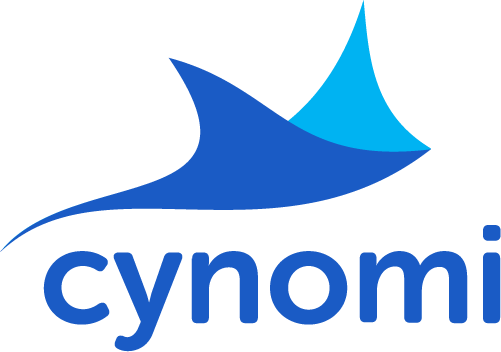This article was originally published by Will Reed and does not necessarily reflect the perspective of Insight Partners. Insight Partners is an investor in Will Reed.
Most early-stage founders know exactly what it means to be a jack-of-all-trades, because you typically need a wide range of skills not only to conceptualize and create your business, but to run it from day one. But as most founders quickly realize, just because you can do something doesn’t mean you should. Take your company’s marketing, for example.
Just because a founder is skillful in social media marketing doesn’t mean they should be the one to manage the Instagram account. With that in mind, there’s probably going to be a point in a founder’s early-stage startup’s journey that they need to bring on a Chief Marketing Officer (CMO).
Why are CMOs so crucial to an early-stage startup’s success? CMOs take ownership of a business’ marketing plan, but they do far more than just that. CMOs look for ways to drive revenue using powerful marketing and advertising strategies, they oversee all of the marketing employees, and they meet with other executives to ensure the marketing department is delivering on business-wide goals.
Marketing is a vital part of any business, but especially for early-stage startups, which need to make sure they’re not in the 20% of startups that fail within the first year. CMOs take on these crucial responsibilities, and execute them with C-suite precision. If you’re thinking about hiring a CMO, here’s everything you need to know, plus key questions you should ask candidates during the hiring process.
When Is it Time to Hire a CMO?
When you’re assembling your team of leaders at your growing early-stage startup, it can be tricky to decide when exactly to hire for certain positions, especially for leadership and C-suite positions. So, how exactly can you decide on the right time to hire a CMO? Here are a few things you can consider.
Firstly, founders should take into account the current size of their marketing team. If there are only one or two marketing professionals on board (and the plan is to keep it that way for the next year or two) then it might not be time to look for a CMO just yet. But if a marketing department is more substantial, this might mean that having a CMO can benefit a company and its marketing team.
Next, founders can consider why they want to bring on a CMO. Some individual reasons (such as more leads or revenue) might not necessarily warrant a full-fledged CMO. But if a startup has comprehensive, complex needs that require a full-time executive to oversee, then this might be an indicator that a CMO will be beneficial.
Lastly, founders can look at the resources they’re putting into marketing, and that they would like to in the near future. In general, research shows that marketing budgets and spending are on the rise, with spending growing at its highest rate in over a decade. If a startup has a substantial marketing budget, a CMO just might be the right person to manage and direct it.
12 Must-Ask Questions
After deciding that now is indeed the right time to bring on a CMO, early-stage founders then need to execute the hiring process. This involves sourcing candidates, conducting interviews, and ultimately selecting your new hire. Whether a founder chooses to find their own candidates or use executive recruiting services, they still need to ultimately conduct interviews.
From a founder’s standpoint, nailing the interviewing process is critical. Interviews don’t only reveal key details about your candidates. They ultimately reveal if they match your company’s culture, and if they’ll be an excellent fit with your startup in the long run.
Research reveals that almost half of job seekers have turned down jobs because of negative experiences during the hiring process. In order to avoid this and other hiring mistakes during the process of bringing a CMO on board, here are 12 must-ask questions to ensure you bring on the perfect candidate.
How Do You Ensure Strategy Becomes Action?
It’s one thing to have big ideas, but it’s another to be able to actually execute them. Founders should ask this question (or something similar) to see how their candidates plan to actually execute their vision. Components of a good answer might include confirming alignment with business needs, setting goals and timelines, distributing responsibilities, and measuring results with metrics and data.
Pitch Our Company
Sometimes called an “elevator pitch,” this question is tried-and-true for good reasons. This prompt gets candidates to pitch themselves to you on the spot. Not only can you potentially learn a lot about a candidate (such as their skills, background, unique qualities, and why they should hire you) you can also see if they’re able to be persuasive and memorable, which would come in handy if they were to take on the role of CMO.
What’s Always On Your Marketing Dashboard?
CMOs should be data-driven, and should be able to really define what success means for them when it comes to marketing. Asking what’s on their marketing dashboard can reveal what key metrics they value the most, and why. This can help you understand how this potential CMO can use data to drive real results.
How Do You Uniquely Approach Branding?
Branding is a key responsibility of a CMO, and every person is going to bring their own unique flavor and practices to your startup. And while branding matters to your business, it also matters to your customers. For example, it takes visitors to your website just 0.05 seconds to decide if they like it or not.
Asking about your candidate’s approach to branding can help founders gauge their candidate’s perspective on branding, in order to ensure that it’s in alignment with their own perspective, and their company’s goals.
How Do You Approach Market Research?
Unfortunately, some of the top reasons startups fail is due to a lack of research, or because they’re in the wrong market. With that in mind, it’s important to understand how exactly your candidate plans to tackle this key issue, and to make sure they deeply understand it
What’s Your Communication Style?
Every candidate is going to have their own habits and styles, and it’s important for founders to understand if these styles work with their startup. For example, mismatched communication styles between a new hire and the business can lead to confusion and conflict. Questions like this can reveal if a candidate is truly a good fit for a startup.
Pitch Us On an Object in This Room
This classic interview question gives your CMO candidate the chance to show their sales skills, along with their communication and persuasion skills. You can also get a glimpse of how well they can understand customer pain points at a moment’s notice, and if your candidate seems prepared to solve them.
If You Could Restart Your Career, What Would You Alter?
This reflective question can give founders insight into what their candidate’s career actually looked like in the past, and how they’ve grown along their journey. While where your candidate is today is more important than what their past looks like, this question can also reveal habits or traits about your candidate that they may not openly share.
For example, if they say they would have stayed at their earlier positions for more time, you might pick up on the fact that they’ve bounced around a lot. This is then a question you can ask, to ensure they want to stay with your company for the long haul.
What’s Something You’ve Learned in the Last Year?
When someone is running at full steam ahead at an advanced point in their career, they might not always be actively learning lessons. Asking this question can open up the floor for your candidate to share something relatively recent that they’ve learned, which can help founders understand if their candidate is an ongoing learner. You can also gauge what unique insights they can bring to your startup as a leader.
How Do You Lead Inbound vs. Outbound Marketing?
During the interview process, one of the biggest goals is to understand your potential CMO’s specialties, styles, and skills. Asking them specific questions like this about their marketing preferences can help you understand if their style matches your own, and if they’re ultimately in alignment with your company’s culture.
What Would Your Third and Fourth Months Look Like Here?
Joining a new company in a C-suite position is a big undertaking, and the first few months can be a dynamic experience of learning, growing, and transitioning. While the first few months will probably mostly consist of onboarding and becoming acquainted with the role, the 3rd and 4th month might be when your new CMO really gets to come into their own in this position.
What Are the Biggest Marketing Challenges Today, and How Are You Overcoming Them?
The marketing landscape is riddled with ever-changing challenges, and startups need a CMO who doesn’t only understand these challenges, but who can navigate them with ease. Asking this question can help you understand how well your candidate understands the challenges they might face, and how they can overcome them.












